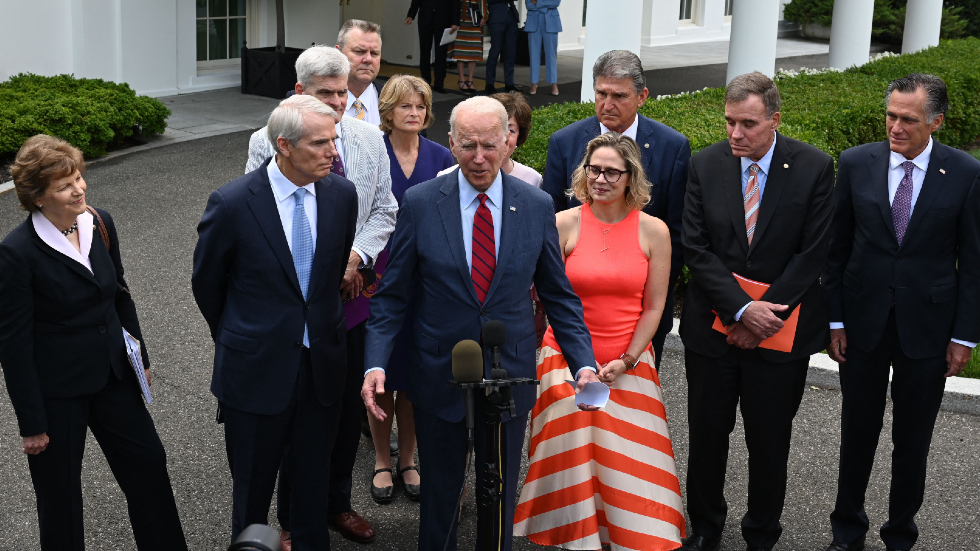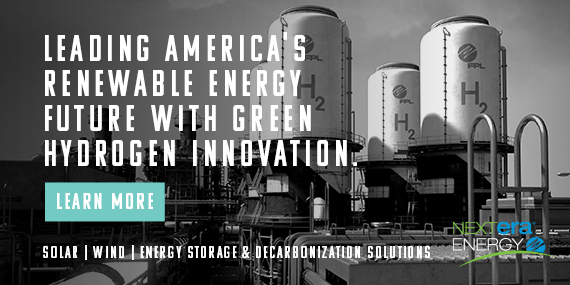Equilibrium/Sustainability — Presented by NextEra Energy — Set millions of tires on fire, pay less than $10,000

Today is Thursday. Welcome to Equilibrium, a newsletter that tracks the growing global battle over the future of sustainability. Subscribe to the newsletter here: digital-stage.thehill.com/newsletter-signup.
When a 27-million-ton pile of tires caught fire in 2020, the oily smoke “blocked out the sun,” in a burn that, according to a state inspector’s report, seemed almost inevitable, The Colorado Sun reported Thursday.
Aside from ignoring state laws about recycling two tires for every one trashed, the Sun found that the so-called Tire Mountain obstructed access roads and were stacked higher than permitted — not to mention the weeds that “grew everywhere, creating more fire hazards.”
Mountainous negligence notwithstanding, the state charged the owners just $8,704, although they also warned the dump not to do it again before they close in 2024. It’s the best they can do, a regulator told the Sun: They can only impose fines for violations they saw that day, “and it’s a maximum of $10,000 per penalty per day,”
Which raises some broader questions on accountability: Who’s in charge, what is enough, and how do we get it? Today, we’re looking at that question in two very different corners of green business.
First, we’ll explore whether a Biden administration ban on a Xinjiang company — accused of human rights abuses — will impact the solar industry. Then, we’ll look at how investors are demanding more transparency from companies about their own footprints and the risks they are incurring from climate change.
For Equilibrium, we are Saul Elbein, operating out of Washington, D.C., and Sharon Udasin, based in Boulder, Colo. Please send tips or comments to Saul at selbein@digital-stage.thehill.com or Sharon at sudasin@digital-stage.thehill.com. Follow us on Twitter: @saul_elbein and @sharonudasin.
Let’s get to it.
A MESSAGE FROM NEXTERA ENERGY
As the world’s largest producer of wind and solar energy, NextEra Energy is pioneering innovation on green hydrogen – the solution for deep decarbonization of hard-to-abate sectors. See how at NextEraEnergy.com.
How to cleanse a clean energy supply chain of forced labor?

The Biden administration is putting its foot down on the use of forced labor in China’s Xinjiang region, by calling out several companies that produce raw materials used to make solar panels.
The U.S. Customs and Border Protection (CBP) on Thursday issued a “withhold release order” on silica-based products made by Hoshine Silicon Industry Co., Ltd. — meaning that U.S. ports will now detain shipments that contain such products, as well as all materials derived from them. Hoshine is one of the world’s largest producers of metallurgical-grade silicon (MGS) — a key raw material used to make solar-grade polysilicon.
But the company is notable for another reason: its use of forced labor. “The [People’s Republic of China] PRC’s use of forced labor in Xinjiang is an integral part of its systematic abuses against the Uyghur population and other ethnic and religious minority groups,” the White House announced Thursday, calling the countries’ actions in Xinjiang “genocide” and “crimes against humanity.”
The Department of Commerce added Hoshine, as well as four other companies, to its “Entity List,” which restricts the export or in-country transfer of commodities related to the firms on the list.
What’s the impact on the U.S. solar industry? Probably not much. Although the Biden administration is making a bold statement on human rights abuses in Xinjiang, industry experts are doubtful that the move will have a significant effect on the U.S. solar supply chain.
“While this is a somewhat headline-grabbing move … in practical terms, U.S. imports of any solar-related hardware from China are already minimal,” Pavel Molchanov, an energy analyst at Raymond James, wrote in an industry brief Thursday.
China, he wrote, last year accounted for only 4 percent of U.S. imports of photo-voltaic (PV) modules — units of several PV cells — down from 11 percent in 2017. The amount of Chinese-origin polysilicon coming into the U.S. also must be “immaterially small,” Molchanov wrote, stressing that China is a net importer of polysilicon.
Although about 85 percent of the solar panels sold in the U.S. are imported, there are also many firms producing silica in other parts of Asia and in the U.S., so the supply chain should not be seriously disrupted, Bob Davis wrote in The Wall Street Journal — and Obama- and Trump-era tariffs on Chinese panels have already moved most U.S. consumption away from China, Molchanov explained.
What’s the impact on China’s solar industry? Also probably not much. The Wall Street Journal piece described the actions as “largely symbolic,” stressing that the move would be felt not in supply chains but in certification, as U.S. businesses “will have to ensure the materials they import comply with the order.”
Molchanov also pointed out the fact that the CBP ban applies only to one specific company, with the others relegated to the Department of Commerce’s “blacklist.” He acknowledged, however, that “in a broader sense it can be seen as a kind of precedent.”
Even Hoshine may see little impact at this point, as it has plenty of customers outside the U.S. China itself had three times more solar panels installed than the U.S. did last year, Molchanov explained.
“There is always going to be a massive domestic market in China where the buyer probably doesn’t worry very much about human rights violations,” he told Equilibrium in a Thursday interview.
NEEDED: UNITED FRONT
A “contaminated” solar supply chain: While the Biden administration’s ban won’t likely cause much visible change to the American and Chinese PV industries, it does bring light to a dark secret of the supply chain.
From its three factories in Xinjiang, Hoshine has manufactured MGS for at least eight of the world’s largest polysilicon producers, which analysts say account for nearly all the supply of solar-grade polysilicon, The Washington Post reported.
And because these manufacturers have at one point been customers of Hoshine, “the solar value chain is almost completely contaminated by forced labor,” Johannes Bernreuter, a market research analyst who studies the polysilicon industry, told the Post.
Molchanov acknowledged the difficulties in proving “beyond a reasonable doubt that every source of silicon in a certain solar panel” is clean, but stressed the fact that certification processes do exist. “Because the ban applies only to one company, it’s not going to be that difficult for the supply chain to wash its hands of Hoshine,” he said.
So what can be done to curb human rights abuses in the solar industry? Molchanov said the U.S. must rally bigger importers, like the European Union, Japan, Australia and India in a coordinated effort.
“If enough customers tell their Chinese suppliers, ‘You as an individual company need to certify that your polysilicon, your labor is responsible,’ then they will do it,” he said. “The Chinese government is not going to change its behavior in and of itself, but those solar companies inside China will need to think, ‘How can we make sure that our supply chain is responsible?’ ”
“Even if the Chinese government doesn’t care,” he added, “individual companies can take steps to improve their own practices.”
A MESSAGE FROM NEXTERA ENERGY
We’re pioneering innovation on green hydrogen – the solution for deep decarbonization of hard-to-abate sectors. See how it can create jobs, accelerate economic growth and more at NextEraEnergy.com.
Investors demand clarity on climate risk

Say you’re a climate-conscious investor, concerned with either the impacts that companies in your portfolio have on the environment — or the impact that climate or social change will have on your investments. What can you do?
Right now, not much. In many countries, including the U.S., companies still don’t have to report their performance on environmental, social and governance (ESG) factors. As a result, a passel of voluntary, inconsistent reporting standards have sown confusion.
That’s why a key global securities watchdog is stepping in — just as the Securities and Exchange Commission (SEC), spurred by the House of Representatives and much of the investing community, considers doing the same.
Step one: Investors “have signaled very clearly how confusing the multiplicity of different ESG ratings choices can be,” Ashley Alder, the chair of International Organization of Securities Commissions (IOSCO), said Wednesday, according to Huw Jones of Reuters.
In the U.S., the lack of a consistent standard — and of any requirement to include ESG factors in published annual filings to the SEC — has made it almost impossible for investors to know how exposed investments are to climate risk, or whether they’re earning interest from companies making the problem worse.
“Incentives for neglect”: Or they’re lying about it. A preliminary report by the SEC in April, as Benjamin Rush wrote for Bloomberg, found that “funds had major compliance gaps, and they lacked formal procedures to ensure that investments billed as ESG are meeting standards.”
Under the current framework, there’s no incentive for CEOs to disclose climate risk or impacts — or even to know about them, Madison Condon, a law professor at Boston University, told Equilibrium.
Since a CEO’s compensation is tied to stock price and climate adaptation can have high upfront costs, Condon said that the executive “has more personal incentive to neglect discovering that he [or she] has to move a factory, or raise the floor of a property.”
Climate risks affect every company, Condon added, noting that there remained a “mass delusion among the market” about accepting that.
Big investors clamor for disclosure: But some investors are concerned. Specifically, the “universal investors” — companies like BlackRock or State Street, which tend to be invested in the entire market, rather than just individual sectors — are calling for better disclosures.
Those companies, Condon said, are likely to see a company like Exxon as just one among many in their portfolio — and one whose emissions are jeopardizing the future of all the others.
“They’re starting to say, climate change is an existential threat to my investment,” Yevgeny Shrago, policy counsel at Public Citizen, told Equilibrium. “So, it’s important to invest in companies fighting — or at least not worsening — climate change if I want to realize my investments in 30 years.”
UNIVERSAL OWNERS FACE A GLOBAL THREAT
Need to know. A recent controversy at Exxon, Condon noted, in which universal investors backed a bid by activist hedge fund Engine No. 1 to install more climate-conscious board members, signals a new era of active management — and of interest in climate change. “No issue ranks higher than climate change on our clients’ lists of priorities,” Larry Fink of BlackRock wrote in his annual CEO letter, staking his company behind a goal of net-zero emissions by 2050.
That’s a measure, Condon noted, that strikes many activists as “not nearly fast enough” but is also revolutionary “for institutional investors to demand this sort of long-term industrial planning.
Achieving it, though, requires consistent and reliable information — which, Condon said, must come by means of the SEC.
What disclosure looks like varies by industry and sector, Bethany Davis Noll of the New York University School of Law told Equilibrium. “Companies need to disclose how much carbon they emit, and their efforts to reduce those emissions,” as a concrete measure of investment moved away from fossil fuels, she said, calling current corporate statements in that vein little more than public relations.
That’s a question of “impact,” as opposed to risk, whether — as in the case of Exxon — from the danger that a low-carbon economy will leave the company behind, or from climate change itself.
What we’re watching: The SEC is already considering an ESG disclosure rule, which legal scholars interviewed by Equilibrium agree is well within its purview.
But the movement got an additional boost last week from the House of Representatives, which on June 16 passed the ESG Disclosure Simplification Act of 2021, by a razor-thin 215-214.
Two other bills — the Climate Risk Disclosure Act and the Climate Change Financial Risk Act — are also working their way through Congress.
Meanwhile, as the attorney general of West Virginia has threatened to sue the SEC if it passes an ESG rule, according to CFO Dive, a dozen Democratic state attorneys general have written the agency in support of the measure.
Takeaway: Expect to hear a lot more about this. “It’s still pretty early days” for ESG, Condon said.
ROUND-UP
Thursday Throwdown

White House signs off on infrastructure deal
- The White House agreed on Thursday to the terms of a bipartisan infrastructure deal, which includes key climate provisions President Biden had pushed for but scales down investment in them, Rachel Frazin and Zack Budryk reported in The Hill.
- The eight-year, $1.2 trillion plan includes $579 billion in new spending, from which $312 billion would go to transportation and $266 billion would go to “other infrastructure” such as water, broadband and environmental remediation, according to a White House fact sheet.
- While the agreement comes after weeks of negotiations, it could face further obstacles. Biden announced Thursday that he won’t sign the deal if Congress doesn’t also pass a reconciliation bill, Alex Gangitano and Morgan Chalfant also reported in The Hill.
- Meanwhile, Speaker Nancy Pelosi (D-Calif.) said that the House would not go forward with an infrastructure bill until the Senate has passed both the bipartisan bill and a reconciliation bill.
Wildfires threaten American drinking water supplies
- Because two-thirds of U.S. drinking water originates in forests, the wildfires that blaze across the West each summer can have a damaging effect on that water supply, Henry Fountain reported in The New York Times.
- In Colorado’s Front Range, for example, erosion from fire-damaged slopes could turn river flows dark with sediment, dissolved nutrients, heavy metals and debris. That in turn could clog intake pipes, reduce the capacity of reservoirs, cause algal blooms and contaminate water, according to the Times.
- Fires can also affect the availability and timing of water supplies, a Canadian Forest Service expert told the Times, stressing that the growth of new vegetation as forests recover results in greater water consumption.
Europe’s natural gas systems as leaky as America’s, expert says
- Under an infrared camera, the clear air above 123 European gas plants turned a rich, deadly purple, the activist group Clean Air Task Force found — revealing the leak of invisible methane, Kate Abnett and Shadia Nasralla reported for Reuters.
- Methane — another name for natural gas — warms the planet dozens of times more than an equivalent amount of carbon dioxide, which is one reason the EU is considering laws to force fossil fuel companies to monitor, report and repair methane leaks, according to Reuters.
- The report is a blow to Europe’s conception of itself, an anonymous expert told Reuters. “There is this urban legend that the U.S. natural gas system is disproportionately leaky compared to the rest of the world … When I look at these videos, they don’t seem very different than the United States.”
{mosads}Tomorrow we’ll be looking at the long-term climate and sustainability implications of the recent bipartisan deal on infrastructure — and on its chances of winning over progressives who want a much larger package.
This is Equilibrium. See you Friday afternoon.
Copyright 2023 Nexstar Media Inc. All rights reserved. This material may not be published, broadcast, rewritten, or redistributed. Regular the hill posts









